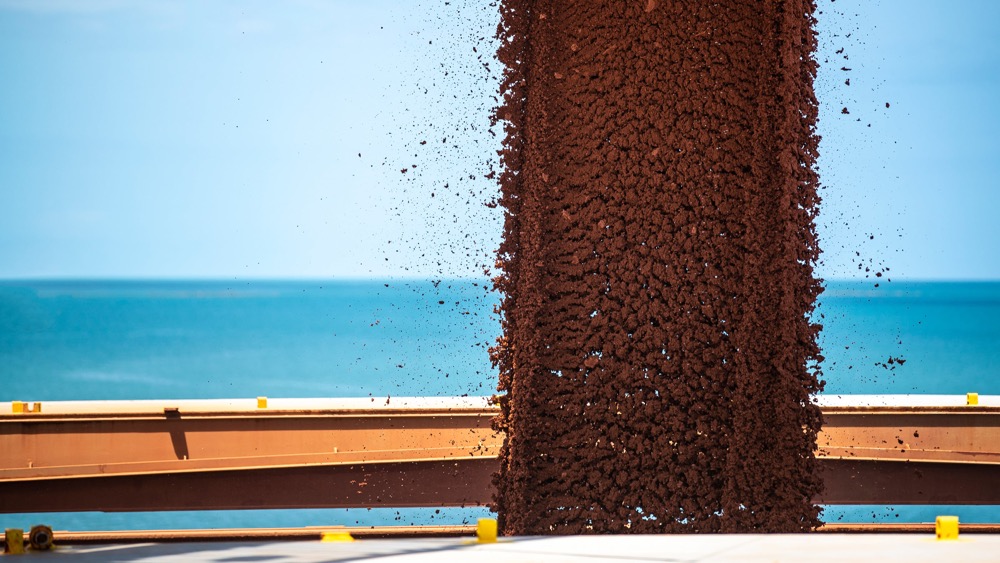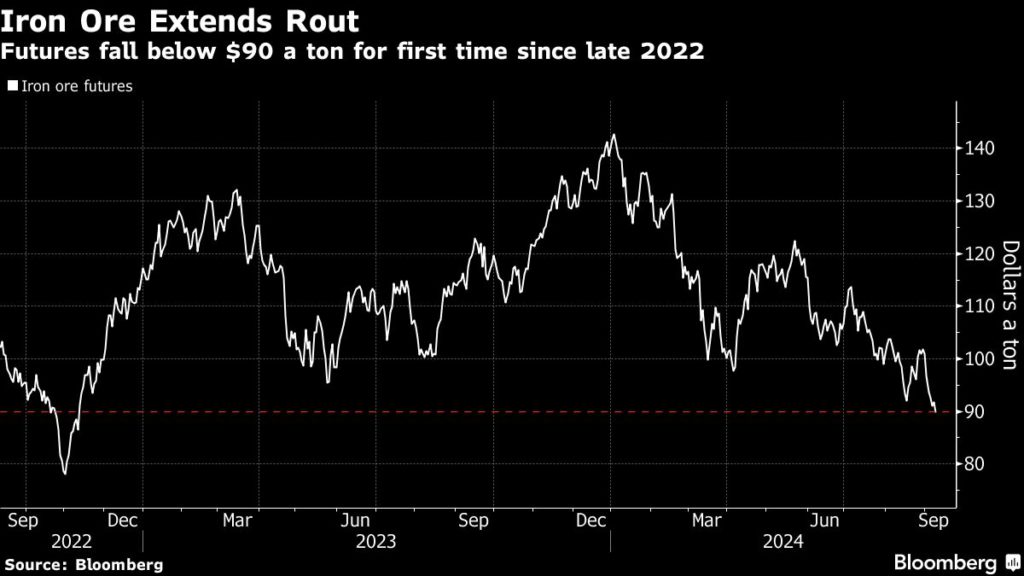Iron ore sell-off deepens as global growth fears hit commodities

Iron ore sank below $90 a ton for the first time since 2022 as industrial commodities faced sustained pressure from tepid Chinese demand and gathering worries over global growth.
Futures for iron ore have fallen by more than a third this year as an unresolved steel crisis in China threatens demand for the raw material. But there are broader headwinds, with base metals and crude oil also retreating in recent weeks as 2024 turns out to be a jittery year across the commodities complex.
“Investors are shifting focus from US inflation to growth fears,” said Jia Zheng, head of trading at Shanghai Soochow Jiuying Investment Management Co. “China lacks significant stimulus support and the market is pessimistic.”

The more cautious mood in metals was underscored last week by Goldman Sachs Group Inc. hacking about $5,000 a ton off its long-standing bullish copper forecast — largely because of soft Chinese demand. Uncertainty around the US presidential election in November would keep the global economy subdued and weigh on metals prices, Citigroup Inc. said.
Iron ore fell as much as 2.3% to $89.60 a ton in Singapore, and traded at $90.70 as of 2:29 p.m. local time. Aluminum was little changed after notching an eighth daily decline on Friday. The LMEX Index of six metals is now up by only 3% this year, compared with 25% in mid—May.
Consumption of steel in China has weakened because of the country’s protracted real estate slowdown, with the world’s biggest steel producer, China Baowu Steel Group Corp., saying the industry could be facing a worse crisis than the downturns in 2008 and 2015. While exports and growth in other sectors are softening the blow, cuts to steel output have left the iron ore market saddled with excess supply.
Downside risks
Iron ore futures on China’s Dalian Commodity Exchange are expected to test 600 yuan ($84) a ton, according to Zhang Shaoda, an analyst with China Futures Co. That’s more than 10% below the latest levels.
“Piecemeal stimulus measures in China so far haven’t reached a critical mass to improve investment sentiment, with some lead indicators showing signs of further deterioration,” Bloomberg Intelligence analysts Grant Sporre and Emmanuel Munjeri wrote in a note on iron ore.
Citi’s metals analysts said the knife-edge US election — and the risk of a resurgent trade war under a Donald Trump administration — was feeding through to China by spurring Beijing to delay a stronger policy response. China’s core inflation just cooled to the weakest in more than three years, in the latest sign of weak demand in the world’s second-biggest economy.
Still, steel-buying typically recovers after the summer months, which could provide a respite for mills.
“We expect iron ore prices to find some support from mid-September as China’s autumn construction season picks up, and on seasonal restocking ahead of the Golden Week holiday,” said RBC Capital Markets analyst Kaan Peker, referring to a one-week break in China at the start of October.
Read More: Trafigura’s top China iron ore traders leave group
{{ commodity.name }}
{{ post.title }}
{{ post.date }}




Comments